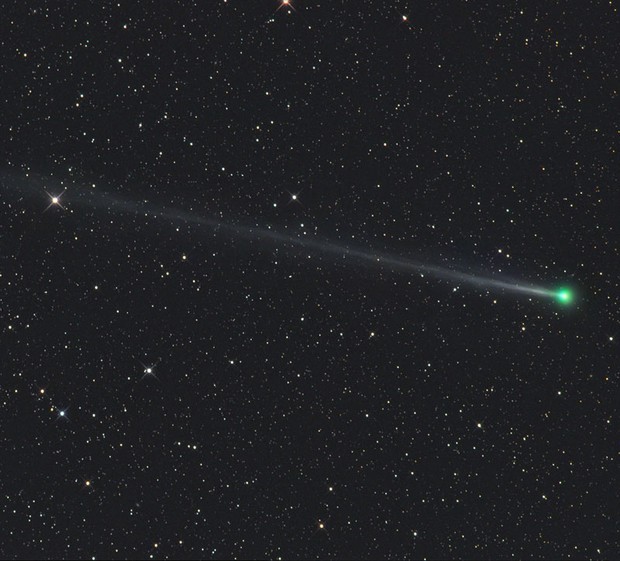Just as the world welcomes the New Year, a comet will pass through Earth and light up the night sky with a dazzling spectacle of natural fireworks.
NASA experts joked that you should forget about the New Years Eve fireworks this year because tonight the night sky is still lit by natural fireworks!
Specifically, according to Science Alert, tonight – December 31, a comet will pass close to Earth and illuminate the night sky with natural fireworks.
As a result, comet 45P / Honda-Mrkos-Pajdušáková will fly right next to the crescent moon on the night of December 31.
According to astronomers, every five years this comet, with its bright blue and green head, crosses the rings of the solar system.
It started to get bright west of the horizon on December 15th. And on December 31, they will approach the Sun at a distance of 140 million km. A special feature is that you can observe them with a telescope.
Paul Chodas, director of NASA’s Center for Near-Earth Object Studies (NEO), said: “You have a good chance of seeing this comet event only with specialized binoculars. stars, it is impossible to predict whether or not you will be able to see this phenomenon clearly. ”
Astronomers often use the apparent luminosity (of a celestial body) to determine the luminosity of an object in the sky; The lower this brightness, the brighter the object. The brightest stars have an apparent magnitude of 0 or 1, while the weakest is 6.
Comets are a collection of rocks, dust, ice, and frozen gases such as carbon monoxide (CO), methane, and ammonia. Due to its low density, a comet’s nucleus is not as cuboid as larger objects in the universe and is therefore often irregular in shape.
If you want to admire this phenomenon, look to the South East, just after New Year’s Eve!




